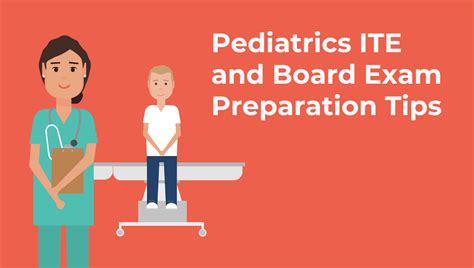How To Study For Pediatric Boards
Ronan Farrow
Apr 02, 2025 · 3 min read

Table of Contents
How to Conquer the Pediatric Boards: A Comprehensive Study Guide
Preparing for pediatric board exams can feel overwhelming, but with a structured approach and the right resources, you can confidently conquer this milestone. This guide provides a comprehensive plan, focusing on effective study strategies, resource utilization, and maintaining your well-being throughout the process.
1. Understand the Exam Format and Content:
Before diving into studying, familiarize yourself with the exam's structure, question types, and content outline. Knowing what to expect will help you focus your efforts efficiently. Key aspects to understand include:
- The number of questions: Familiarize yourself with the total number of questions and the time allotted. This helps you pace yourself during practice tests.
- Question types: Practice with various question formats, including multiple-choice questions (MCQs), true/false, and possibly case-based scenarios.
- Subject weighting: Understand which subjects hold more weight on the exam. This allows for prioritized study time allocation. Prioritize areas like newborn care, infectious diseases, and common childhood conditions.
2. Create a Realistic Study Schedule:
Procrastination is the enemy! Create a study timetable that's realistic and sustainable. Don't try to cram everything in the last few weeks. Consider these points:
- Start early: Begin preparing well in advance, ideally several months before the exam date.
- Break it down: Divide the entire syllabus into smaller, manageable chunks. This makes the task less daunting.
- Consistent study: Aim for regular, shorter study sessions rather than sporadic, long ones. This improves retention.
- Prioritize topics: Dedicate more time to areas you find challenging or those with higher weighting on the exam.
- Build in breaks: Regular breaks are crucial for preventing burnout and improving focus.
3. Utilize Effective Study Resources:
Many resources can aid your preparation. Choose ones that align with your learning style. Examples include:
- Review books: Several reputable pediatric review books provide comprehensive coverage of the subject matter. Select those with high ratings and positive reviews.
- Online question banks: Practice questions are essential for reinforcing concepts and identifying areas needing further study.
- Practice exams: Take full-length practice exams under timed conditions to simulate the actual exam environment. Analyze your performance to identify weaknesses.
- Past papers: Analyzing past papers gives insights into the exam's style and question types.
4. Employ Active Learning Techniques:
Passive reading is not enough. Actively engage with the material to enhance retention. Strategies include:
- Active recall: Test yourself frequently using flashcards or practice questions.
- Spaced repetition: Review material at increasing intervals to improve long-term retention.
- Teach someone else: Explaining concepts to others solidifies your understanding.
- Create summaries and notes: Condensing information into your own words helps with comprehension and memorization.
5. Maintain Your Well-being:
The preparation process is intense. Prioritizing your well-being is crucial to avoid burnout and maintain optimal performance. Remember to:
- Get enough sleep: Adequate sleep is essential for memory consolidation and cognitive function.
- Eat healthy: Nourish your body with a balanced diet to support brain function.
- Exercise regularly: Physical activity reduces stress and improves focus.
- Take breaks: Schedule downtime for relaxation and hobbies to prevent burnout.
- Seek support: Connect with colleagues or mentors for support and encouragement.
6. Practice, Practice, Practice:
Consistent practice is key. The more you practice, the more comfortable you'll become with the exam format and the types of questions asked. Regular practice tests will also help you identify areas where you need to focus your studies.
By following this comprehensive guide, incorporating effective study strategies, and prioritizing your well-being, you'll be well-prepared to confidently face your pediatric board exams. Remember, preparation is key, and your success is within reach!
Featured Posts
Also read the following articles
| Article Title | Date |
|---|---|
| How To Style A Boyfriend Blazer | Apr 02, 2025 |
| How To Score Sporting Clays | Apr 02, 2025 |
| How To Tell What Size Lift Is On My F250 | Apr 02, 2025 |
| How To Train Your Dragon Motorcycle Helmet | Apr 02, 2025 |
| How To Store Jeep Doors | Apr 02, 2025 |
Latest Posts
-
How Fast Is 18 Hp In Mph
Apr 04, 2025
-
How Fast Is 1600w 48v In Mph
Apr 04, 2025
-
How Fast Is 150 Hp In Mph
Apr 04, 2025
-
How Fast Is 119 Km In Mph
Apr 04, 2025
-
How Fast Does Xeomin Work
Apr 04, 2025
Thank you for visiting our website which covers about How To Study For Pediatric Boards . We hope the information provided has been useful to you. Feel free to contact us if you have any questions or need further assistance. See you next time and don't miss to bookmark.
